Cannabis is recognized for its ability to provide consumers with a variety of benefits, but some of its side effects, especially from large amounts of consumption, can be less than savory.
One of the most apparent side effects many consumers experience is “weed eyes,”a.k.a., that red, bloodshot ocular tint that may occur after consuming cannabis.
This can be distressing – especially for newer consumers, who may find themselves in a cannabis-infused panic googling “why does weed make your eyes red?”
However, there’s no need to worry. Bloodshot eyes don’t have any long-term negative effect on your vision, although they may be annoying to deal with in the moment.
Despite the shock that might occur when you see your eyes turn red for the first time, understanding why this happens and all of the science behind it can help consumers feel more at ease when they look in the mirror.
What Causes “Weed Eyes”?
In general, why do your eyes get red when you smoke weed?
Red eyes are perhaps the most well-known, widely-recognized indicator that someone has smoked weed, simply because of how visually obvious it is to others. However, weed doesn’t just make your eyes red when you smoke it – in fact, the redness has nothing to do with the act of smoking at all.
Any cannabis-infused product – whether it be edibles, concentrates, or actual flower – will generally cause the consumer’s heart rate and blood pressure to increase.
This is due to the cannabinoids present, and how they initially react to the body. For reference, the increase is comparable to the rise in heart rate and blood pressure people experience from exercising.
About 5-10 minutes after the cannabinoids have reacted to your body, the rate and pressure will slowly drop back to normal, causing the blood vessels and capillaries to dilate. This includes your ocular capillaries, which, in turn, increases blood flow to the eyes.
This results in that red, bloodshot appearance. Cannabis also reduces intraocular pressure, a huge selling point for medical patients struggling with glaucoma or other visual issues, like degenerative blindness or diabetic retinopathy.
The effects are only temporary – about 1-3 hours, depending on your body and tolerance level – and can usually be remedied, or at least alleviated, with eye drops.
However, studies seem to suggest that THC affects intraocular pressure more than other cannabinoids. Further research is required in this area, but it seems like products with higher amounts of THC result in redder eyes (and decreased intraocular pressure).
How Else Does Weed Affect The Eyes After Consumption?
There are a few other recognized visual side effects that people may experience from consuming cannabis, although additional research is definitely still required to flesh out these findings.
- Cannabis may cause an allergic reaction in the eyes. Many people suffer from allergies, and unfortunately, some unlucky consumers realize the hard way that they are allergic to cannabis.
Whether this is triggered by an allergic reaction to smoke, moldy weed, or just the plant itself, sensitive consumers may experience dryness, redness, itchiness, wateriness, or inflammation.
These reactions usually aren’t too serious or threatening, but if you’re incredibly allergic (or smoking a moldy batch of flower), ingesting cannabis can become quite dangerous.
If this is the case, make sure to consult with your doctor or even a cannabis specialist before consuming more.
- Cannabis may help improve your visual processing. Although there is scant research on the topic, the studies that have been conducted suggest that cannabis consumption may have a positive effect on visual processing in the brain.
One such study concluded that babies who were exposed to cannabis in the womb seemed to score significantly higher in visual processing tests. They also displayed improved motion perception.
While The Bluntness is by no means taking a stance on the nuances of cannabis and pregnancy, the studies reveal that cannabis may indeed help the brain and body process visual information more succinctly.
- Cannabis may help consumers see better in the dark. Unfortunately this won’t likely give you the night vision powers of Iron Man, but some studies suggest that cannabis may help the eyes respond to light (or lack thereof) with more ease than they would otherwise.
As with most cannabis-related claims, further research is a must, but this 2016 study reveals that cannabinoids seem to engage with receptors that result in an improved ability to see in low-light conditions.
This isn’t an entirely new concept – as far back as the 1990s, researchers in Jamaica noted that some of the local fishermen who consumed cannabis on a regular basis appeared to have “an uncanny ability to see in the dark.”
Can I Make My Eyes Less Red From Consuming Weed?
Cannabis certainly seems to have a variety of effects on vision, ranging from annoying (and possibly dangerous, if you have severe allergies or are consuming faulty product) to incredible.
But however beneficial cannabis can be to your eyes and overall vision, red eyes are a dead giveaway that many consumers don’t relish– especially anyone opting for ultimate discretion.
Unfortunately, there aren’t too many remedies for bloodshot weed eyes, other than throwing on a pair of sunglasses, using some over-the-counter eye drops, sleeping it off, or just waiting.
Another recognized possible remedy is to eat foods that constrict blood vessels, which may help reduce redness in the eyes. This includes caffeine, chocolate, potato chips, breads, pastas, or any other foods that are higher in sodium.
However, most of these food options are not healthy, and they may not be the quick fix you’re looking for, especially if you need your eyes to appear normal yesterday.
Known as the quickest fix among consumers, eye drops do seem to have the most power against red eyes, due to their near instant (and consistent) effect. If you’re trying to keep your cannabis consumption on the down-low, it’s considered smart practice to keep a bottle of Visine on you for emergencies.
Or just tell people you have allergies. Problem solved!
Need a little more Bluntness in your life? Sign Up for our newsletter to stay in the loop.
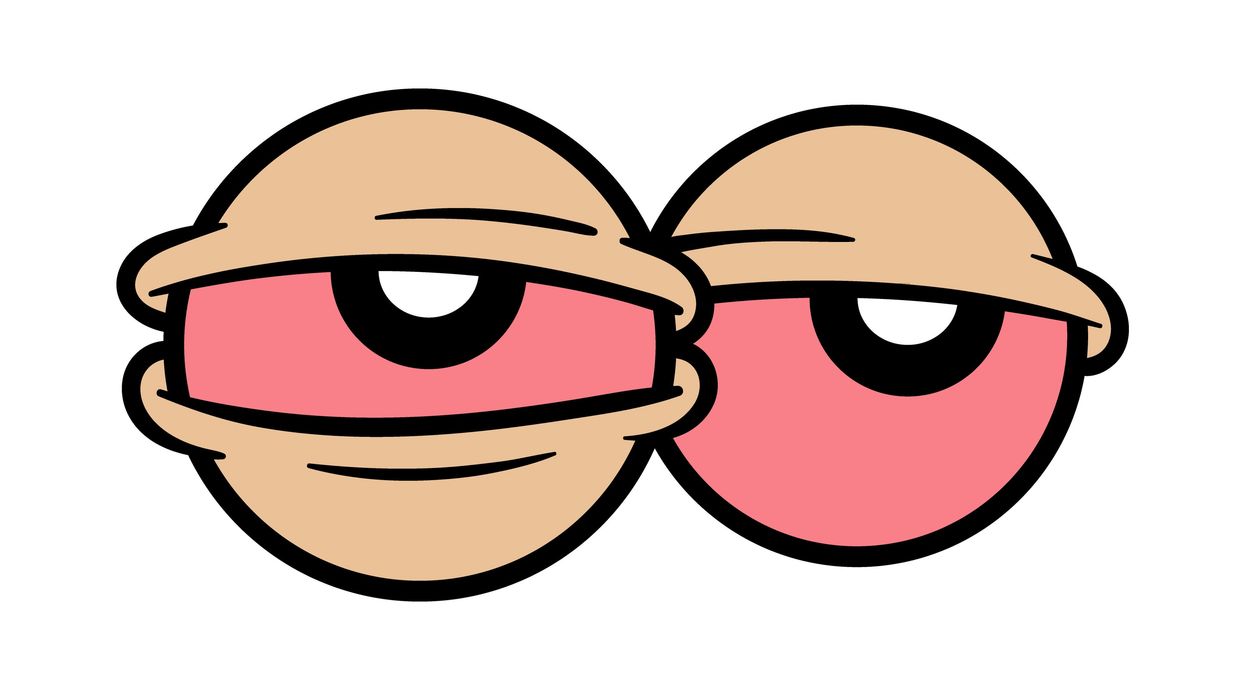













 The Truth About THC Candle: Cannabis Candles & How to Make Your Own - The Bluntness
Photo by
The Truth About THC Candle: Cannabis Candles & How to Make Your Own - The Bluntness
Photo by 
 What will you do with that cannabis kief collection? - Make Coffee! The Bluntness
What will you do with that cannabis kief collection? - Make Coffee! The Bluntness DIY: How to Make Kief Coffee - The Bluntness
Photo by
DIY: How to Make Kief Coffee - The Bluntness
Photo by 
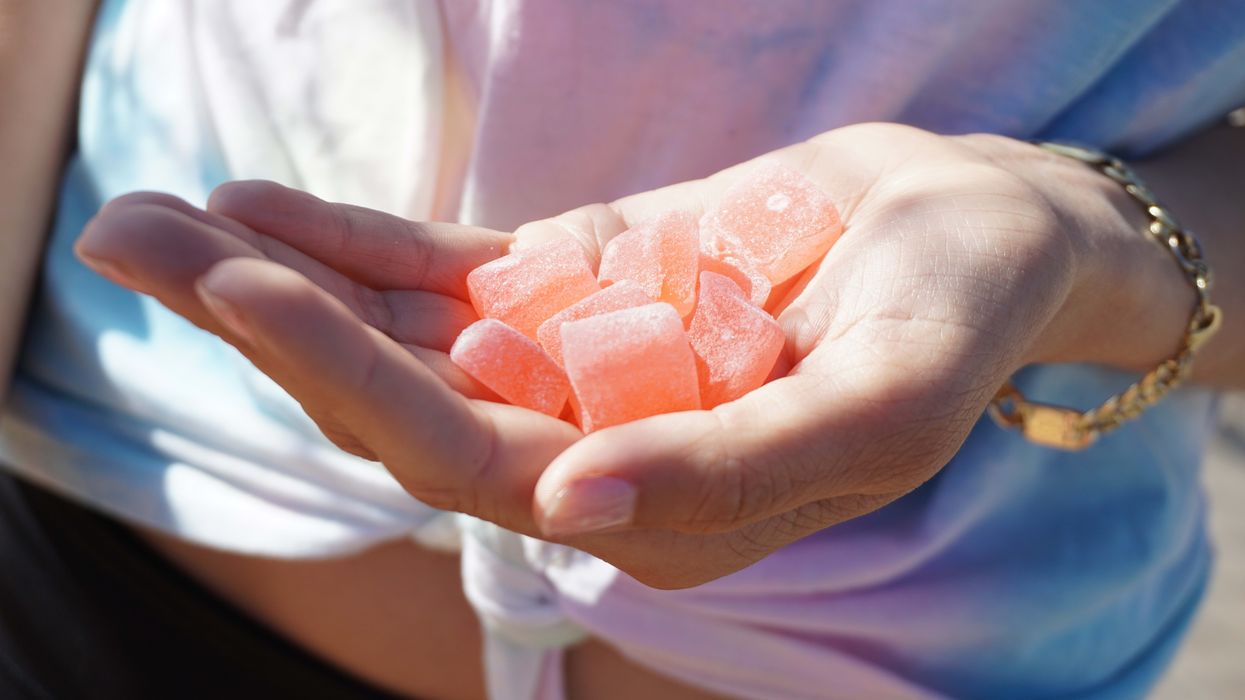
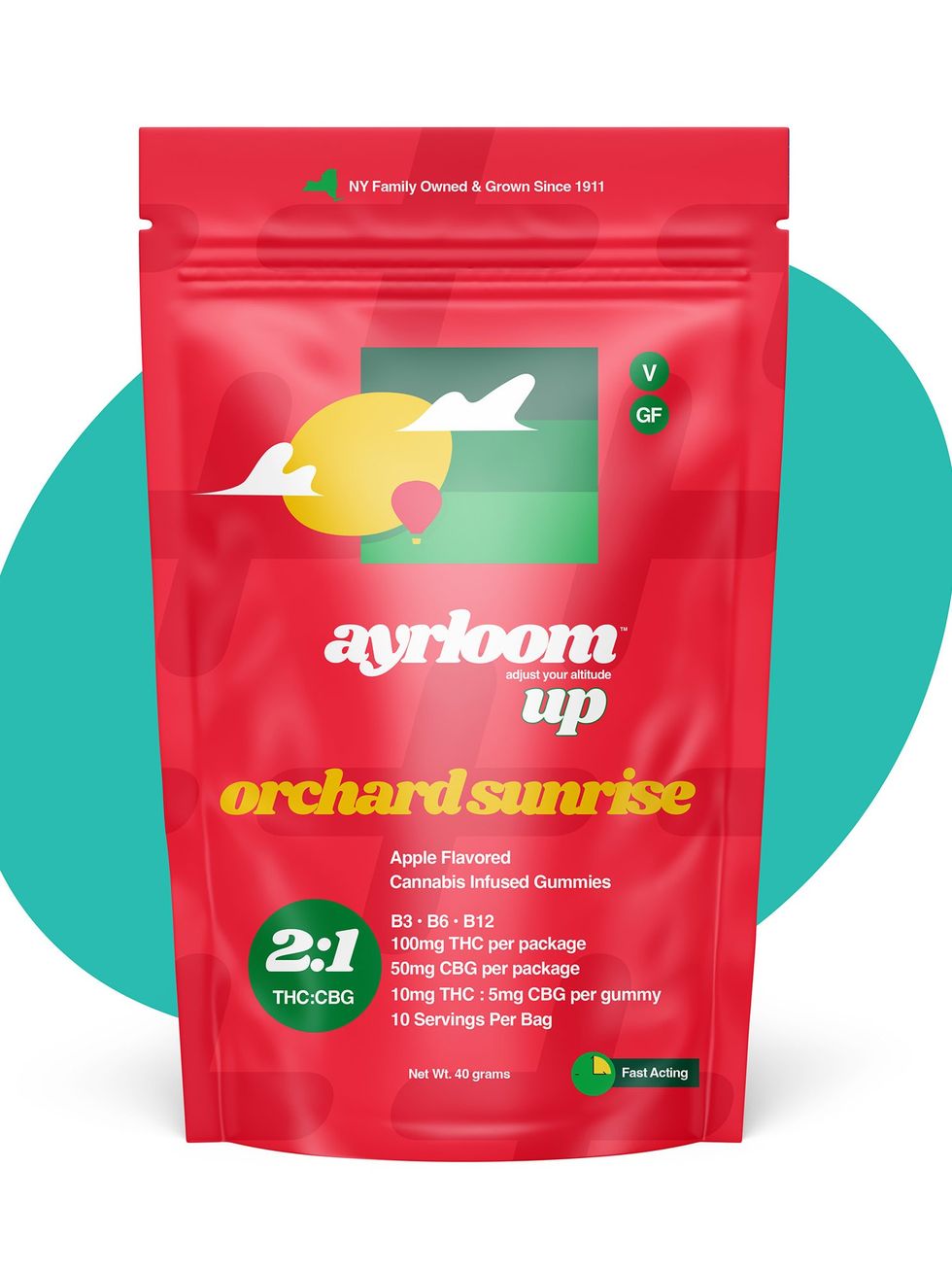 Ayrloom Orchard Sunrise Cannabis Infused Gummies
Ayrloom Orchard Sunrise Cannabis Infused Gummies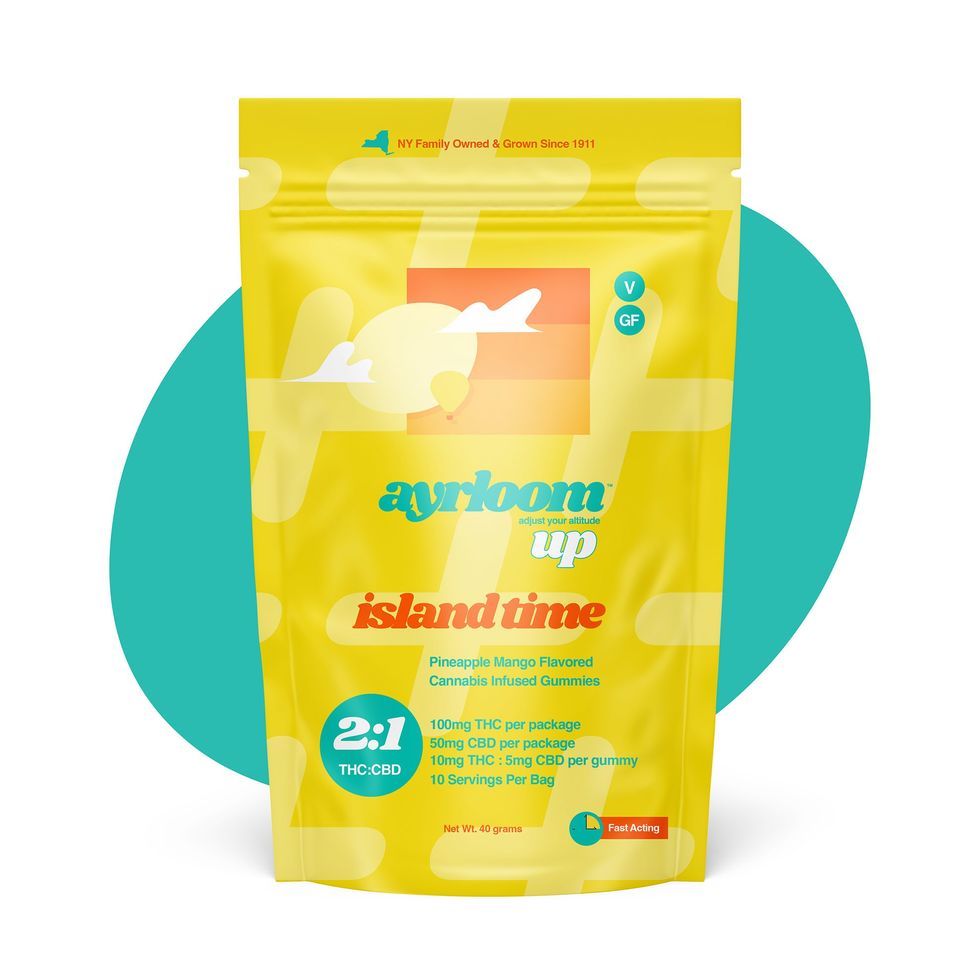 Ayrloom Island Time THC Gummies - Pineapple Mango Flavor
Ayrloom Island Time THC Gummies - Pineapple Mango Flavor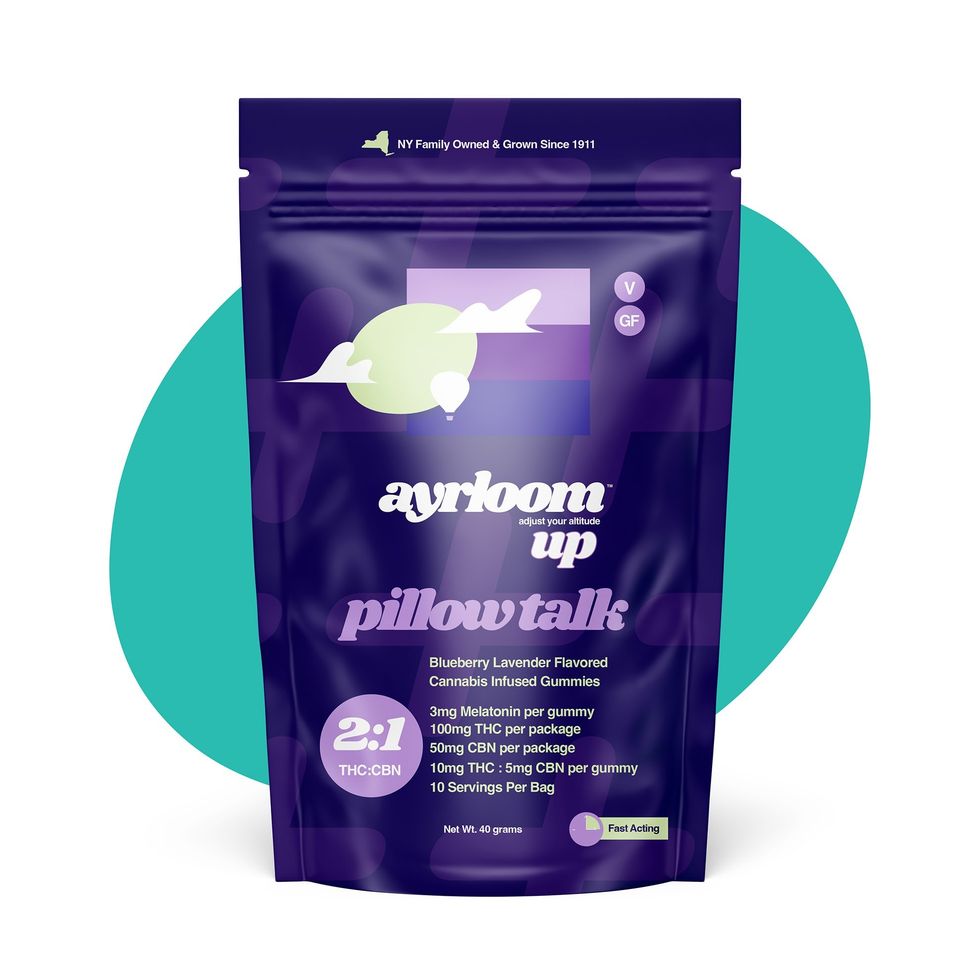 Ayrloom Pillow Talk - Sleep Gummies
Ayrloom Pillow Talk - Sleep Gummies